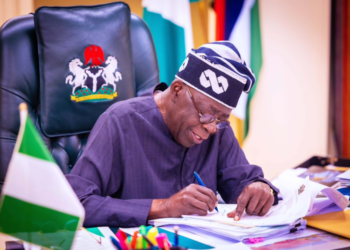Reports from the Central Bank of Nigeria reveals that Capital inflow to Nigeria has crashed by 80 per cent in the last two years.
What is Capital Flow ?
Capital flows are transactions involving financial assets between international entities. Financial assets to be included can be bank deposits, loans, equity securities, debt securities, etc. Capital outflow generally results from economic uncertainty in a country, whereas large amounts of capital inflow indicate a growing economy.
How Capital Inflow Fell
Capital inflow to Nigeria fell from $17.1bn in July 2019 to $3.4bn in July 2021. The CBN analysis showed that Nigeria registered a $17.1bn capital inflow between January and July 2019.
Nonetheless, From January and July 2021, the economy recorded a stunted $3.4bn as capital inflow, representing a fall of 80 per cent. Concurrently, capital inflow fell from $8.6bn in 2020 to $3.4bn in 2021.
CBN reports suggests, $380m, $870m, $660m and $110m were recorded as capital inflows in January, February, March and April, while $290m, $480m and $620m were recorded in May, June, and July 2021 respectively. This represented a sum total of $3.4bn in the first seven months of 2021.
While the CBN reports put the total capital inflow between January and July 2019 at $17.1bn, to cumulate capital inflow between January and July 2020 was put at $8.6bn.
According to the CBN, The decline in capital inflow was as a result of the negative impact of the COVID-19 pandemic. Although economists and financial experts have faulted the drop on other economic and societal variables such as insecurity and exchange rate instability.
What the CBN is Saying
Words from the CBN report “A comparative analysis showed that cumulative capital inflow declined significantly by 49.7 per cent to $8.6bn between January and July 2020, compared with $17.1bn within same period in 2019, reflecting the effect of the COVID-19 pandemic during the review period.”
The Central Bank further stated that the previous years decline was by 13.7% and economic variables such as oil price shock, and market uncertainties has affected foreign investors decisions.
“Capital inflow declined by 13.7 per cent, month-on-month, to $0.63bn in July 2020, owing largely to the risk averseness of foreign investors on account of uncertainties associated with the pandemic, oil price shocks, and fragile economic activity.
“Analysis of inflow during the review period showed that at $0.63bn, inflow declined by 13.7 and 66.8 per cent, relative to $0.73bn and $1.9bn in the preceding and the corresponding months, respectively.
“Of this amount in July 2020 FDI at $0.06bn, accounted for 10.3 per cent of total inflow; FPI, $0.31bn (49.7 per cent), and other investments in form of loans (OI), $0.25bn (40.0 per cent).
“These were below the $0.12bn and $0.31bn for FDI, and OI, respectively, but above the $0.3bn FPI recorded in the preceding month.”
Expert Views
The Former (ANAN) Association of National Accountants of Nigeria president, Dr Sam Nzekwe has associated the decline in capital inflow to the COVID-19 pandemic, stressing the economic impact of insecurity.
He stated, “The second one is insecurity. The third one is lack of infrastructure. The other one is the policy of the government. The investors want to see that the investment policies are well specified and how sustainable the policies are.”
Dr Ayo Teriba, The Chief Executive Officer, Economic Associates explained that the pandemic restricted investments and led to oil price instability.
“2019 was the economic peak before the pandemic. 2020 was when the pandemic broke out. The lockdown started in March. For investment to contract (during this period) is understandable due to the outbreak of the pandemic and the resulting lockdown because it was global.
“Given that the pandemic damaged the economic prospects, we needed to respond to that by shifting away from depending on oil export to offering new investment opportunity that is consistent with post COVID-19 economic reality, but we are not so forth coming on that.
“Nigeria needs to bring investment opportunities that are consistent with the post pandemic reality, and we have not done that. Investors will not come in the absence of investment opportunities.”










